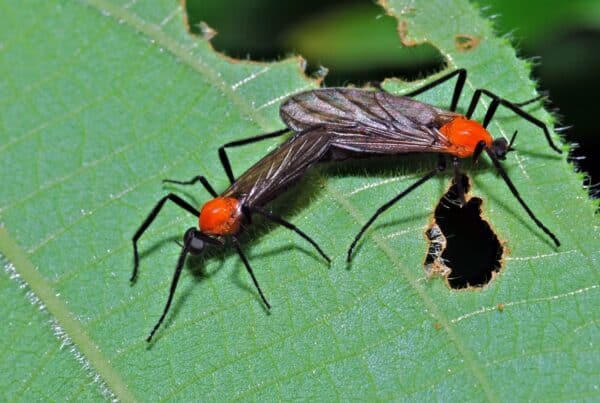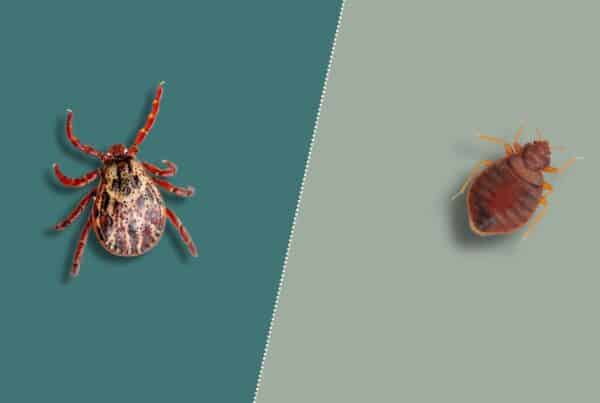As winter sets in and the temperature drops, it often feels like spiders and other insects get suspiciously sparse. But what normally happens to them during the winter months? Do spiders hibernate through the cold or do most of them die?
Understanding them a little better can help you manage their presence in your home more effectively. So, in this article, we’ll explore how spiders handle winters and provide practical tips to keep your home spider-free year-round.
Spider Behavior Year-Round
Spiders are highly adaptable creatures whose behaviors shift with the changing seasons. In the warmer months, they are busy hunting for food, building webs, and reproducing.
They are more visible during this time, often seen scurrying around gardens and homes. As temperatures drop in the fall, their activity decreases significantly. Spiders begin to seek out sheltered locations to protect themselves from the cold.
Common places where people stumble upon them in the winter include basements, attics, garages, and other quiet, undisturbed areas. Knowing their seasonal patterns can help you anticipate and manage spider activity.
Do They Hibernate?
Spiders don’t hibernate in the traditional sense like some animals, but they do slow down significantly in cold temperatures.
This period of reduced activity, often referred to as diapause, allows them to conserve energy and survive the winter. Rather than hibernate or actively hunt, spiders seek out hidden, sheltered locations where they can stay safe from the harsh conditions.

How Spiders Survive Cold Temperatures
Spiders have fascinating adaptations that help them endure the winter months. Some spiders produce special proteins that act like antifreeze, preventing their body fluids from freezing even in very low temperatures.
Others rely on finding warm, sheltered spots within homes or other structures. You might find them in cracks in walls, behind furniture, or inside unused clothing and boxes. These strategies allow spiders to remain dormant and survive until the warmer weather returns.
Common Spiders and Their Winter Habits
Depending on where you’re located, different spider species can show up in the house sometimes. Each has unique ways of handling winter, like:
- House Spiders: They are often found indoors throughout the year and will continue to stay in hidden nooks and crannies of your home during winter.
- Cellar Spiders: Known for their long legs, cellar spiders typically inhabit basements and will stay there during the cold months.
- Wolf Spiders: Unlike many other spiders, wolf spiders are active hunters and might be seen seeking shelter in leaf litter or within homes to escape the cold.

Spider Prevention and Other Maintenance
Keeping your home spider-free during the winter takes a bit of effort, but it’s well worth it. Here are some practical, effective tips to help you manage spider activity:
- Seal Cracks and Gaps: Start by inspecting the exterior of your home for any cracks or gaps that spiders could use to get inside. Use caulk or weather stripping to seal these entry points, paying special attention to areas around windows, doors, and the foundation.
- Reduce Indoor Clutter: Spiders thrive in cluttered environments where they can easily hide. Declutter your home, particularly in storage spaces like basements and attics. Use sealed containers to store items and make it harder for spiders to find a place to settle.
- Regular Cleaning: A clean home is less inviting to spiders and their prey. Vacuum regularly, especially in corners, under furniture, and in seldom-used areas where spiders might hide. Cleaning up food crumbs and other debris can also reduce the insect population that spiders feed on.
- Check and Repair Insulation: Proper insulation not only keeps your home warm but also makes it less hospitable for spiders. Inspect your insulation for any damage or gaps and make necessary repairs to maintain a consistent indoor temperature.
- Fix Leaks and Ensure Proper Drainage: Spiders are attracted to moisture, so it’s crucial to fix any leaks and ensure good drainage around your home. A dry home is less appealing to spiders and other pests.
- Maintain Good Ventilation: Humidity can attract spiders, so ensure your home is well-ventilated. Use dehumidifiers in damp areas like basements and keep air circulating to create an environment that spiders find less inviting.
When to Call a Professional
Sometimes, spider problems can escalate beyond what you can handle on your own. Call for expert assistance in any of these situations:
- Significant Infestations: If you’re seeing a large number of spiders or finding webs in many areas of your home, it might indicate a larger problem that requires professional intervention.
- Persistent Spider Presence: When spiders keep coming back despite your preventive measures, it’s a sign that there may be hidden entry points or other issues that need to be addressed by an expert.
- Dangerous Spiders: If you encounter venomous spiders like black widows or brown recluses, it’s best to leave the removal to professionals who have the knowledge and equipment to handle them safely.
Conclusion
Knowing whether spiders hibernate and how they survive the winter months can greatly aid in managing their presence in your home. Anticipating their behavior allows you to take effective steps like sealing entry points, decluttering, and keeping your home clean and dry.
For the times when spiders or other pests become more than a minor nuisance, don’t wait to call for help. In Jacksonville, FL, and surrounding areas, call Inside and Out Pest Services today.



